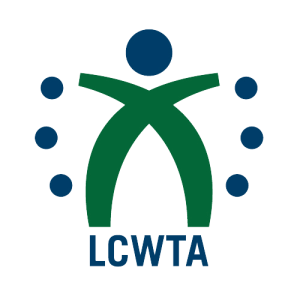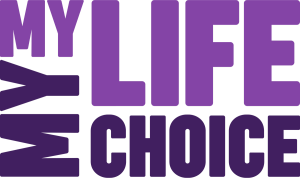Calendar

What is race? What is racism? How do these concepts influence people’s perceptions of themselves and others? How has racism impacted the implementation of policies and procedures across our socio-economic systems?
This three-part training session explores these and other questions to understand the ways racism impacts socio-economic systems. Participants will learn about the origins of racism and engage in discussions about its four levels: internalized (within individuals), interpersonal (between individuals), institutional (within institutions), and structural (across institutions and society). They will review examples of each and evaluate how the practices of specific institutions – child welfare, education and criminal justice, to name a few – perpetuate disparate outcomes for impacted populations. Participants will also go on a historical journey from slavery and segregation to the violence, mass incarceration and voter suppression, to understand how internalized, interpersonal and institutional racism combine to create power structures that advantage some, while disadvantaging all others.
Through this historical perspective, participants will be challenged to evaluate the racist policies and practices that persist in their fields of work, and to start discussions about dismantling systems of oppression so that equity, inclusion and justice can prevail.

Parenting is challenging, particularly when you are parenting a child from a hard place. TBRI® Connecting Principles will provide and in-depth look at connection and attachment and will give you strategies and skills for helping children and families heal. This multi-disciplinary training is designed to give caregivers, volunteers, and professionals who serve children and families the knowledge and practical skills they need to bring hope and healing.
This multi-disciplinary training is designed to give caregivers, volunteers, and professionals who serve children and families the knowledge and practical skills they need to bring hope and healing. This live, online training has 4 video-conferencing modules, giving participants the opportunity learn in an interactive environment.
Please Note: Participants must attend TBRI Introduction and Overview prior to attending this training.
Module 1: Introduction and Insight
Learning objectives:
1. Gain knowledge & insight about infant attachment that will build a foundation for awareness of your own attachment history as well as how to build secure connections with children.
Module 2: Attachment (when things go wrong) and Mindfulness Strategies ( May 15)
Learning objectives:
1. Gain knowledge regarding the effects of insecure attachment on the ability to regulate behavior.
2. Gain insight on how our own attachment styles and histories influence the relationships we have with others.
Module 3: Engagement Strategies
Learning objective:
1. Gain strategies and techniques that make it easier to relate to children in the ways they communicate best – non verbally and through playful interaction.
Module 4: Building Trust by Giving Voice
Learning objectives:
1. Gain understanding and compassion regarding the fact that children from hard places often crave control of their environments, which is a product of having no control over their past.
2. Gain strategies that teach children that their words have power and safe adults will listen to their needs.

Become a Certified Facilitator for the My Life My Choice Prevention Curriculum, an evaluated and nationally‐acclaimed exploitation prevention curriculum aimed at changing adolescent girls’ perceptions of the commercial sex industry, building self-esteem and personal empowerment. Participants learn to run psycho-educational groups with vulnerable girls in a variety of settings to prevent exploitation and/or re-victimization. It is the first comprehensive, survivor-led curriculum in the US and has been used in 36 states. It is both gender specific and gender responsive.
Participants will:
-
Understand the research behind the My Life My Choice Curriculum
-
Learn how to use the Curriculum to run psycho-educational groups with vulnerable girls in a variety of settings to prevent exploitation and/or re-victimization
-
Learn best practices for facilitating a prevention group and explore potential challenges
-
Practice facilitation skills and receive feedback in small and large group settings
-
Receive a copy of the My Life My Choice Curriculum and membership to our prevention-focused Online Community

CWLA has partnered with Welcome2Reality, LLC to present the engaging four-part training series, Dear Black Male. We invite you to join us for a training that will provide an overview of the history and culture of African Americans with a focus on recognizing cultural mistrust, issues faced, and perceptions of Black males. Through lecture and discussion, participants will identity how efforts to adequately provide for Back males can be linked to the fight for larger social justice goals for themselves and their communities. Participants in this training will:
- Develop an understanding of the importance of the role of the historian in interpreting African American history;
- Expand their knowledge and awareness of the disproportionality of Black males who are institutionalized and the impact it has on communities;
- Learn the most common mistakes professionals make when working with Black males and how to avoid them; and
- Engage in dialogue to identify strengths-based practices and interventions that foster family health and resilience.
This training is open and welcome to everyone. The training format will incorporate lecture, discussion, video, and group activities. The following topics will be covered during the four (4) two-hour training sessions:
- Session 1: Dear Black Male…Historical View
- Session 2: Dear Black Male…Incarceration
- Session 3: Dear Black Male…Mental Health
- Session 4: Dear Black Male…Family
Trainers:
Anthony Gay, BA is the Director of Curricula Development at Welcome2Reality, LLC. Anthony is passionate about teaching and conducts research, develops training modules /curricula, and facilitates training. Anthony spent several years as a full-time trainer, developing or co-authoring training modules on fatherhood, professionalism, cultural competency, trauma, working with adolescents, family-centered assessment, and human trafficking. For over ten years, Anthony has been focused on improving communities by advocating for equality for fathers. Anthony is a member of a national fatherhood network that shares resources and ideas to improve fathers’ and families’ outcomes. Anthony is a leader in the realm of fatherhood in Connecticut and hosts numerous fatherhood themed events throughout the year, promoting positive fatherhood. As a result of his dedication, Anthony has received numerous awards recognizing his work with fathers and families.
Qur-an Webb, MSW is the Director of Operations at Welcome2Reality, LLC. Qur-an has been in the social work field for over 20 years and is the Connecticut Chapter Lead for Media Literacy Now, which focuses on education around media literacy. In this role, Qur-an was instrumental in getting Public Act No. 15-94 and Public Act No. 17-67 passed in Connecticut, which now mandates school systems to educate the safe use of social media and computer programming instruction, and in creating an advisory council related to digital citizenship, internet safety, and media literacy. He also works as an independent contractor and is an adjunct instructor. Qur-an is the vice president of the Association of Black Sports Officials. In this role, Qur-an advocates for the rights of and opportunities for Black sports officials and pushes for equality among officials. He also provides training and professional development opportunities domestically and internationally for the company.
